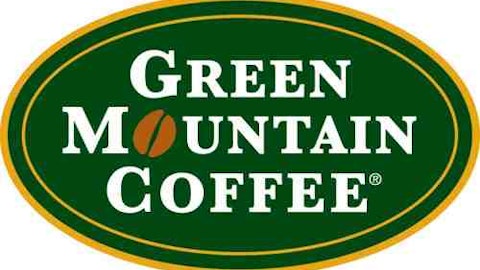According to the U.S. National Restaurant Association, restaurant sales will reach $660.5 billion this year with 3.8% year-over-year growth. The recovery in the U.S. economy provides good prospects for the restaurant industry. The relative increase in customer confidence that comes with economic recovery has encouraged these companies to accelerate unit expansion and remodeling initiatives. Will these three restaurant companies find success in adopting strategies like unit expansion, menu innovation, and remodeling of restaurants to enhance their revenue?
Expansion and new product offering will drive revenue
Dunkin Brands Group Inc (NASDAQ:DNKN) has an opportunity for significant growth in the U.S. It is planning to open 330-360 new restaurants this year, reflecting annual net unit growth of 4.5%-5%. High consumer and franchisee demand is the growth driver. This expansion is part of the company’s long term goal to double it size, reaching 15,000 stores in the U.S. Revenue from the company’s U.S. segment will rise to $526 million this year and $573 million next year, as compared to $485 million last year.
The company is expanding its food and beverage offerings. It plans to launch 100 new items on its food menu after new product introductions on its April, May, and June menus. In these months, it introduced a variety of new salads and sandwiches.

Image activation and debt refinancing
The Wendy’s Company (NASDAQ:WEN) is continuing with its “image activation” program, modernizing its restaurants and aiming to re-image 50% of the company’s operated stores by 2015. The company will invest $500 million under this program between 2013 and 2015. The program began in 2011, and the reimaged restaurants have shown positive results with increase in average sales by more than 25%. This year, the program is targeting 100 company and 100 franchised units. It is also providing incentive of $10 million to franchisees upgrade their restaurants. This innovative program will help accelerate revenue to $2.58 billion this year and $2.68 billion next year, as compared to $2.51 billion last year.
In April 2013, the company entered into debt refinancing for the existing debt of its $1.12 billion senior secured term B loan. The refinancing includes conversion of $350 million of the debt into a new senior secured term A loan that is due in May 2018 with an interest rate of 2.5%. The remaining $769 million term B loan that is due in 2019 is being repriced. The repricing will reduce the interest margin from 3.5% to 2.5% and include a floor reduction from 1.25% to 0.75%. This debt refinancing will generate ongoing annual interest savings of more than $19 million. This is in addition to approximately $30 million in ongoing annual interest savings from refinancing done in 2012. The debt refinancing will increase the company’s adjusted earnings per share to $0.20-$0.22 this year, as compared to $0.17 last year.
Unit growth and margin improvement
Buffalo Wild Wings (NASDAQ:BWLD) reported revenue of $304.4 million with 21.2% year-over-year growth in the first quarter of 2013. Increased customer traffic and unit expansion drove revenue growth. It currently has 380 company owned and 530 franchised units. It plans to open 60 new company units and 45 franchise units this year, showing a focus on continued growth. The company has the potential to reach a total of 1,700 units in North America in the long term. Over the next five years, units in North America will grow 10%-14% annually. The company’s total revenue will rise to $1.27 billion this year and $1.50 billion next year as a result of this growth, as compared to $1.04 billion last year.
The combination of falling wing prices, a new menu structure, and lower food distribution cost will improve the company’s margin. Chicken wings are the company’s primary food product, and the decline in chicken prices will improve its margin as they make up 29% of the company’s cost of goods sold. Wing prices declined to $1.45 per pound in June 2013, down from $2.10 per pound in the first quarter. The assumption is that every $0.10 decline in price results in a 0.35% addition to operating margins and $0.15 in earnings per share.


